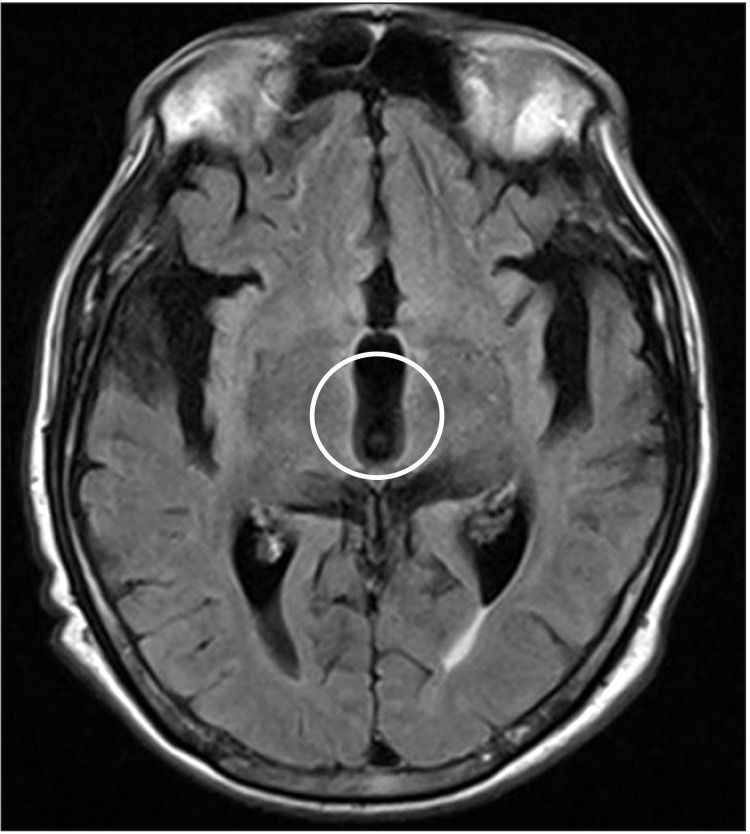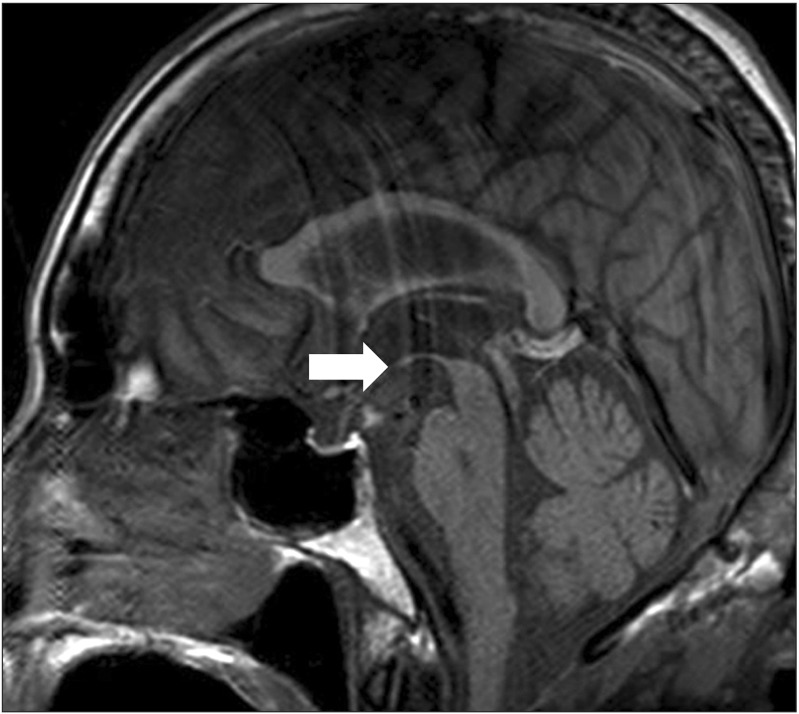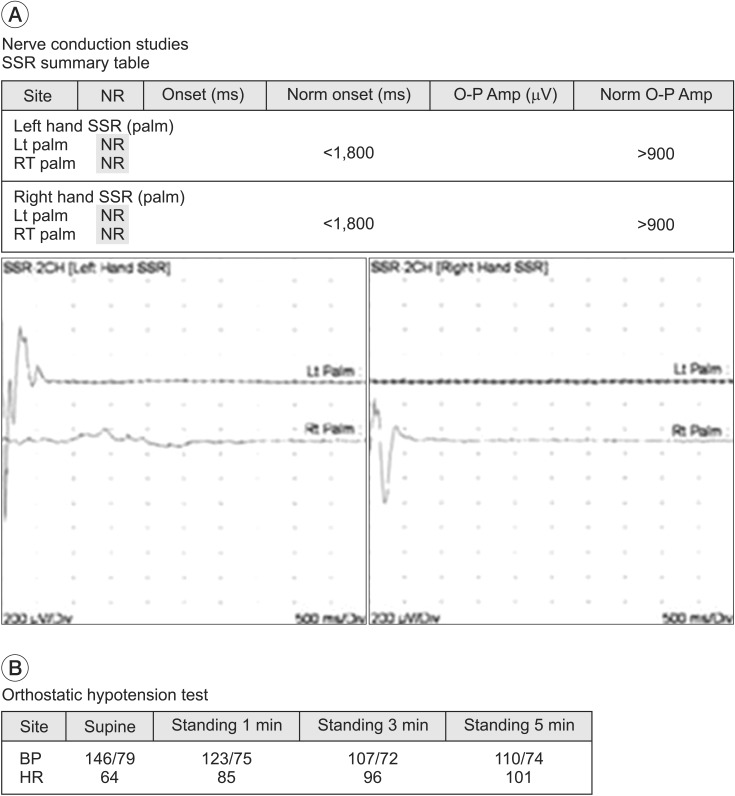Ann Rehabil Med.
2017 Feb;41(1):158-161. 10.5535/arm.2017.41.1.158.
Hypothermia Presenting in Wernicke Encephalopathy: A Case Report
- Affiliations
-
- 1Department of Rehabilitation Medicine, Seoul Medical Center, Seoul, Korea. sunnywind78@gmail.com
- KMID: 2383691
- DOI: http://doi.org/10.5535/arm.2017.41.1.158
Abstract
- Wernicke encephalopathy (WE) is a neurologic disorder characterized by clinical symptoms, such as nystagmus, ataxia, and mental confusion. Hypothermia in patients with WE is a rare complication, and its pathogenic mechanism and therapy are yet to be ascertained. Herein, we presented a case of a 61-year-old man who was diagnosed with WE 3 months earlier. We investigated the cause of hypothermia (35.0℃) that occurred after an enema (bowel emptying). Brain magnetic resonance imaging revealed mammillary body and hypothalamus atrophy. In the autonomic function test, the sympathetic skin response (SSR) test did not evoke SSR latencies on both hands. In addition, abnormal orthostatic hypotension was observed. Laxative and stool softener medication were administered, and his diet was modified, which led to an improvement in constipation after 2 weeks. Moreover, there was no recurrence of hypothermic episode. This is the first reported case of late-onset hypothermia secondary to WE.
Keyword
MeSH Terms
Figure
Reference
-
1. Ropper AH, Samuels MA, Klein JP. Chapter 41. Diseases of the nervous system caused by nutritional deficiency. Adams and Victor's principles of neurology. 10th ed. New York: McGraw-Hill Education;2014. p. 1161–1185.2. Sechi G, Serra A. Wernicke's encephalopathy: new clinical settings and recent advances in diagnosis and management. Lancet Neurol. 2007; 6:442–455. PMID: 17434099.
Article3. Victor M, Adams RD, Collins GH. Chapter 2. Clinical finding. The Wernicke-Korsakoff syndrome and related neurologic disorders due to alcoholism and malnutrition. 2nd ed. Philadelphia: F. A. Davis;1989. p. 11–29.4. Harper C. The incidence of Wernicke's encephalopathy in Australia: a neuropathological study of 131 cases. J Neurol Neurosurg Psychiatr. 1983; 46:593–598. PMID: 6886695.5. Thorarinsson BL, Olafsson E, Kjartansson O, Blondal H. Wernicke's encephalopathy in chronic alcoholics. Laeknabladid. 2011; 97:21–29. PMID: 21217196.6. Philip G, Smith JF. Hypothermia and Wernicke's encephalopathy. Lancet. 1973; 2:122–124. PMID: 4124044.
Article7. Danzl DF. Hypothermia and frostbite. In : Kasper DL, Fauci AS, Hauser SL, Longo DL, Jameson JL, Loscalzo J, editors. Harrison's principles of internal medicine. 19th ed. New York: McGraw-Hill Education;2015. Chapter 478e.8. Jung TH, Park DS, Nam HS, Jung HO, Lee SE, Kim DH. Autonomic function in chronic alcoholic patients. J Korean Acad Rehabil Med. 2009; 33:321–326.9. Ackerman WJ. Stupor, bradycardia, hypotension and hypothermia: a presentation of Wernicke's encephalopathy with rapid response to thiamine. West J Med. 1974; 121:428–429. PMID: 4460385.
- Full Text Links
- Actions
-
Cited
- CITED
-
- Close
- Share
- Similar articles
-
- A Case of Bilateral Sudden Deafness Caused by Wernicke Encephalopathy
- Alcoholic Wernicke Encephalopathy Presenting with Ataxic Gait and Diplopia
- Two Cases of Wernicke's Encephalopathy with Hyperemesis Gravidarum
- Wernicke Encephalopathy in a Homeless Patient With Delusions: A Case Report
- A Case of Wernicke's Encephalopathy Associated with Hyperemesis Gravidarum




